
The Timeless Allure of Old Medina, Casablanca
Step into the Old Medina of Casablanca and be transported to a world where history and modernity coexist in perfect harmony. This ancient walled city, with its narrow alleys and bustling markets, offers a glimpse into the rich cultural tapestry of Morocco. The labyrinthine streets are filled with the scent of spices, the sound of street vendors haggling, and the sight of traditional Moroccan architecture. The Old Medina is a treasure trove for those who love to explore. From the intricately designed doorways and mosaic-tiled walls to the vibrant souks selling everything from handmade crafts to aromatic spices, every corner is brimming with charm. Key landmarks such as the Chleuh Mosque and the historic Bab Marrakech gate provide fascinating insights into the area's past. While the Old Medina is a place steeped in history, it also features modern amenities that make it a comfortable destination for tourists. Numerous cafes and eateries offer delicious Moroccan cuisine, and there are plenty of shops where you can purchase unique souvenirs. The community is welcoming, and you'll often find locals willing to share stories and tips to enhance your visit.
Local tips in Old Medina
- Wear comfortable shoes; the cobbled streets can be uneven and require lots of walking.
- Visit early in the morning to avoid the crowds and enjoy a more relaxed atmosphere.
- Carry some local currency (Dirhams) as many vendors do not accept credit cards.
- Don't be afraid to haggle in the souks; it's a common practice and part of the shopping experience.
- Be cautious with your belongings to avoid pickpocketing, especially in crowded areas.
The Timeless Allure of Old Medina, Casablanca
Step into the Old Medina of Casablanca and be transported to a world where history and modernity coexist in perfect harmony. This ancient walled city, with its narrow alleys and bustling markets, offers a glimpse into the rich cultural tapestry of Morocco. The labyrinthine streets are filled with the scent of spices, the sound of street vendors haggling, and the sight of traditional Moroccan architecture. The Old Medina is a treasure trove for those who love to explore. From the intricately designed doorways and mosaic-tiled walls to the vibrant souks selling everything from handmade crafts to aromatic spices, every corner is brimming with charm. Key landmarks such as the Chleuh Mosque and the historic Bab Marrakech gate provide fascinating insights into the area's past. While the Old Medina is a place steeped in history, it also features modern amenities that make it a comfortable destination for tourists. Numerous cafes and eateries offer delicious Moroccan cuisine, and there are plenty of shops where you can purchase unique souvenirs. The community is welcoming, and you'll often find locals willing to share stories and tips to enhance your visit.
Iconic landmarks you can’t miss
United Nations Square
Explore the vibrant United Nations Square in Casablanca, where modernity meets tradition in a bustling urban hub filled with culture, cuisine, and community.
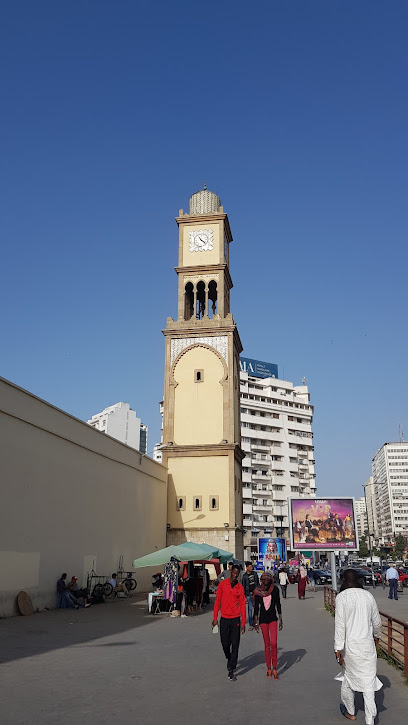
Mohammed V Square
Experience the vibrant culture and history at Mohammed V Square, Casablanca's iconic landmark surrounded by stunning architecture and lively atmosphere.
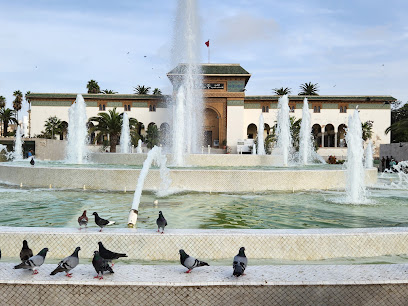
Medina Market
Explore the vibrant Medina Market in Casablanca for a unique shopping and cultural experience filled with local flavors and handcrafted treasures.
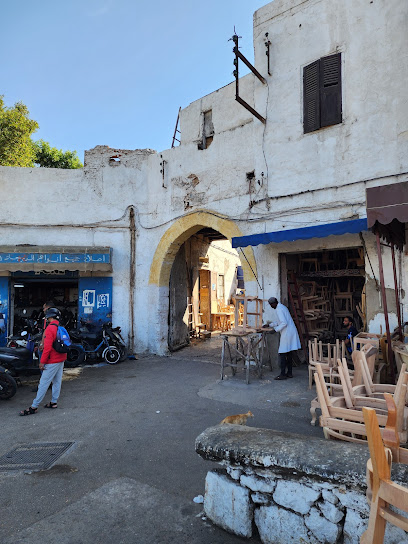
Sacred Heart Cathedral
Discover the architectural beauty and serene atmosphere of the Sacred Heart Cathedral, a must-visit landmark in Casablanca, blending European and Moroccan styles.
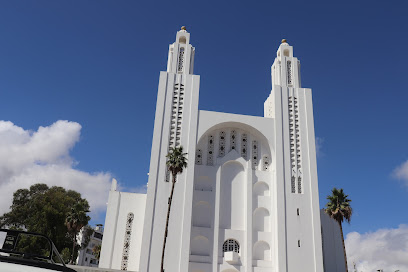
Mahkama of Pacha
Explore the Mahkama of Pacha, a stunning example of Moorish architecture and Moroccan heritage in the heart of Casablanca.
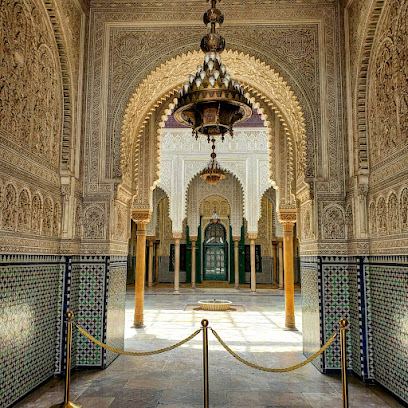
Dar el Makhzen
Discover the historical essence of Morocco at Dar el Makhzen, a stunning landmark in Casablanca that embodies rich cultural heritage and architectural beauty.
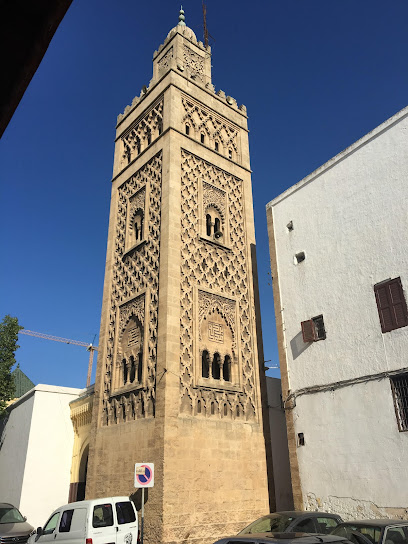
برج الساعة القديمة
Discover the Old Clock Tower in Casablanca, an iconic historical site that showcases the city's rich heritage and architectural beauty.
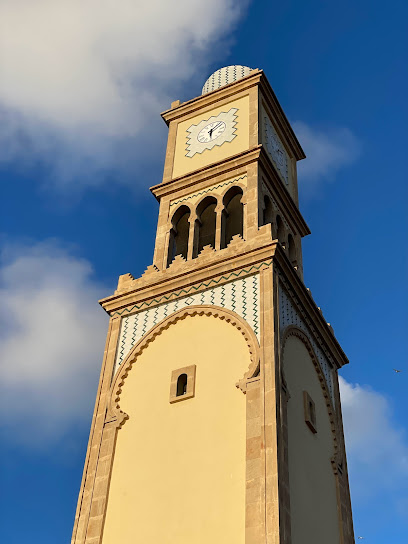
La Tour de l'Horloge
Discover the iconic La Tour de l'Horloge, a stunning blend of history and architecture in the heart of Casablanca’s vibrant city life.
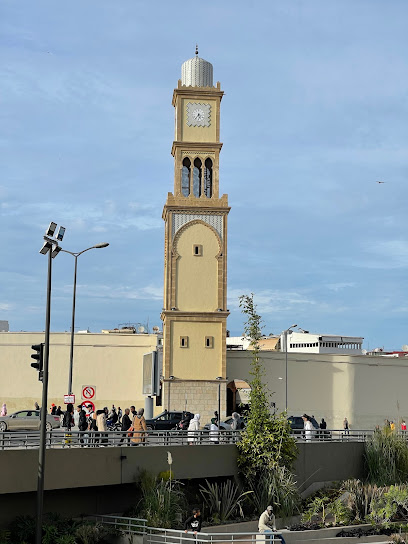
Unmissable attractions to see
Hassan II Mosque
Discover the majestic Hassan II Mosque in Casablanca, a breathtaking architectural wonder and a spiritual beacon overlooking the Atlantic Ocean.
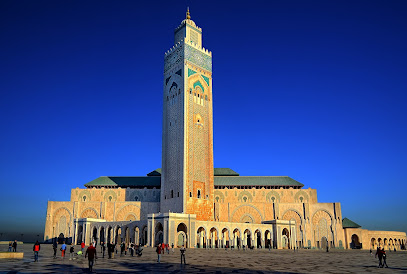
United Nations Square
Explore the vibrant United Nations Square in Casablanca, a cultural hub filled with stunning architecture, lush gardens, and lively local events.
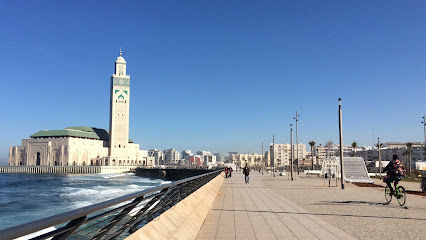
Mohammed V Square
Explore the vibrant Mohammed V Square in Casablanca, a historical landmark filled with culture, stunning architecture, and local life.
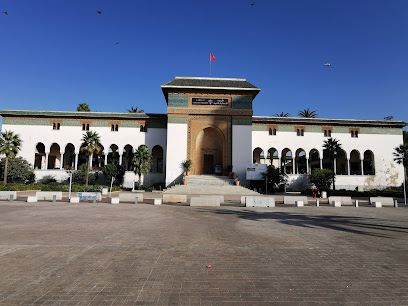
Arab League Park
Explore the lush landscapes and vibrant atmosphere of Arab League Park, the perfect urban oasis in the heart of Casablanca.
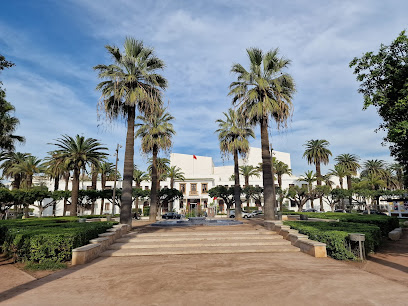
Medina Market
Explore the heart of Casablanca at Medina Market, where vibrant local culture and artisanal treasures await every traveler.
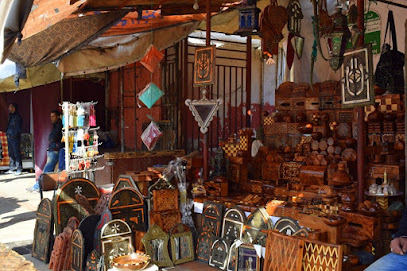
Royal Palace
Experience the grandeur of Casablanca's Royal Palace, a stunning blend of Moroccan architecture and royal heritage in the heart of Habbous.
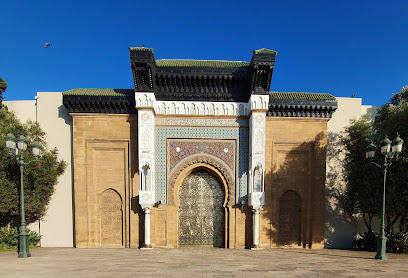
Sacred Heart Cathedral
Explore the Sacred Heart Cathedral in Casablanca, a captivating blend of European and Moroccan architecture, and a serene place of worship.
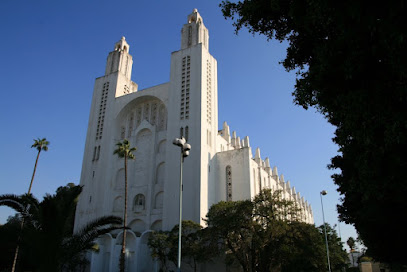
Villa of Arts
Explore the Villa of Arts in Casablanca, a cultural haven featuring contemporary Moroccan art amid tranquil gardens and inspiring exhibitions.
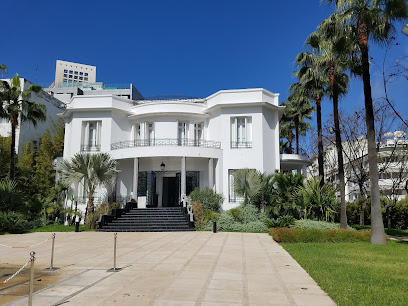
Mahkama of Pacha
Discover the Mahkama of Pacha in Casablanca, a stunning blend of Moorish and Art Deco architecture showcasing Morocco's rich cultural heritage.
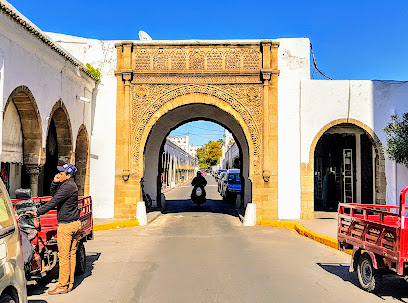
La Tour de l'Horloge
Explore the charm of Casablanca at La Tour de l'Horloge, a historic clock tower surrounded by vibrant local culture and breathtaking architecture.
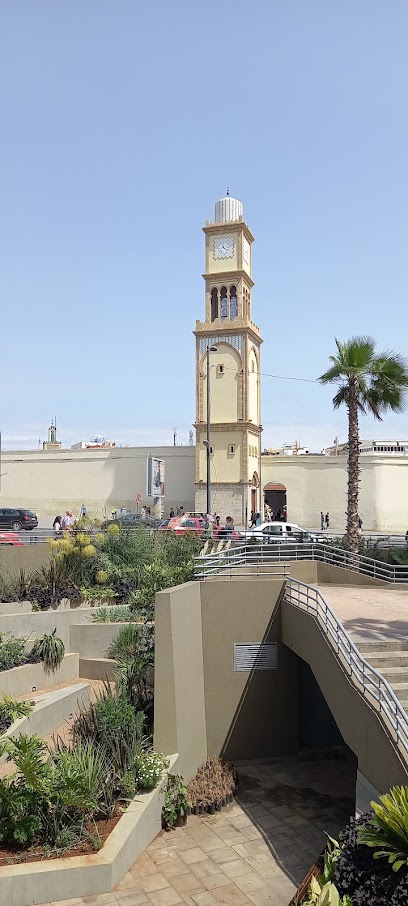
Essential places to dine
La Sqala
Experience authentic Moroccan cuisine at La Sqala in Casablanca – where tradition meets taste in an enchanting setting.
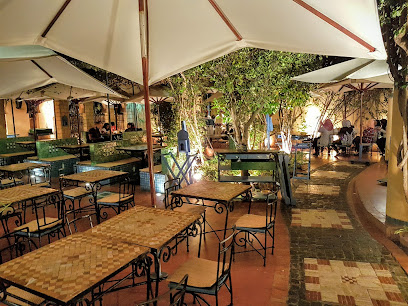
Rick's Café
Experience Casablanca's rich culinary scene at Rick's Café – where delicious seafood meets cinematic history in a captivating setting.
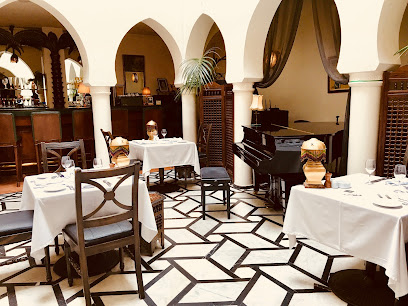
Al-Mounia
Discover authentic Moroccan flavors at Al-Mounia in Casablanca—where tradition meets taste in an enchanting setting.
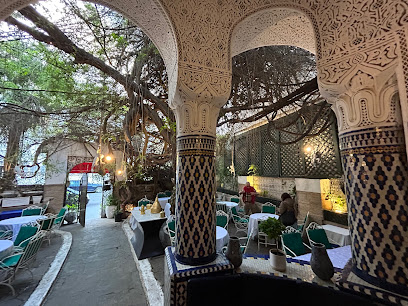
Dar Dada
Experience authentic Moroccan cuisine at Dar Dada in Casablanca, where tradition meets flavor in every dish.
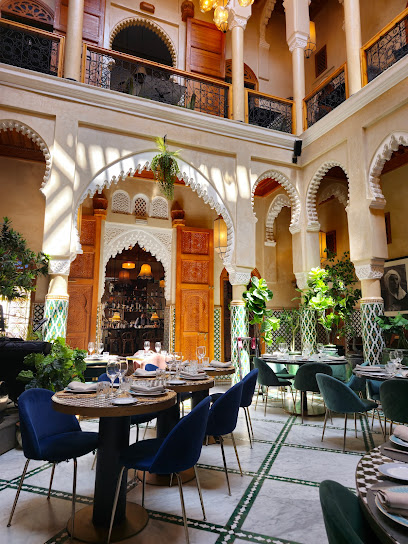
Medina Moroccan Taste
Experience the essence of Moroccan cuisine at Medina Moroccan Taste in Casablanca - where tradition meets flavor.
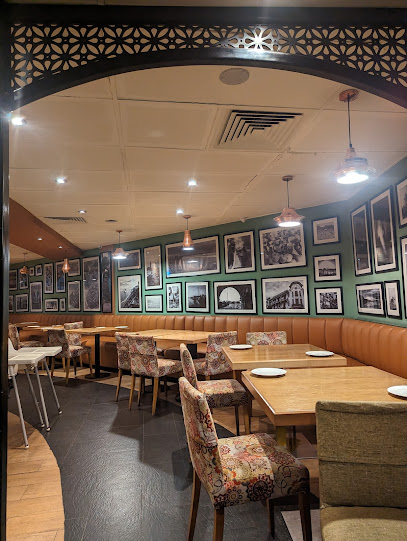
La Bavaroise
Experience authentic French cuisine at La Bavaroise in Casablanca – where exquisite flavors meet warm hospitality.
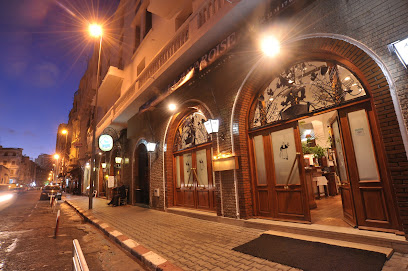
Restaurant Dar El Kaid
Experience authentic Moroccan cuisine at Restaurant Dar El Kaid in Casablanca - a culinary gem blending tradition and flavor.
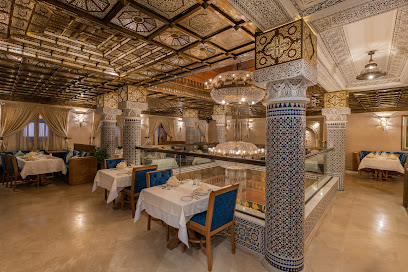
LE MEDINA - المدينة ، أدواق مغربية
Savor the essence of Morocco at Le Medina - your gateway to traditional flavors in the heart of Casablanca.
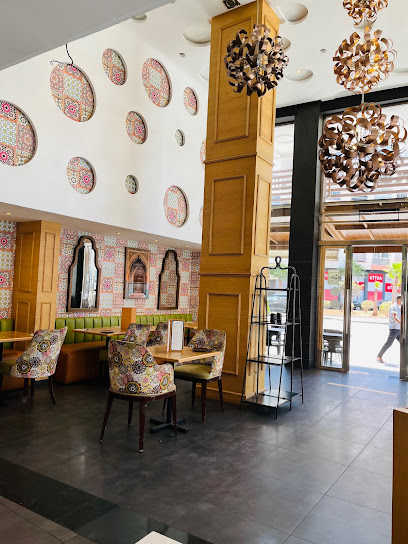
Ryad’s restaurant
Discover the essence of Moroccan dining at Ryad's Restaurant in Casablanca—where tradition meets taste in every exquisite dish.
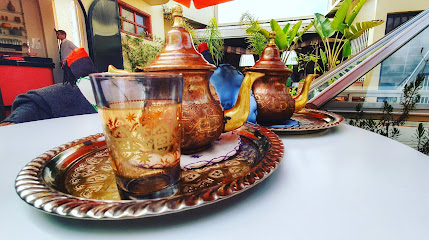
MEDINA RESTAURANT MAROCAIN
Experience authentic Moroccan cuisine at Medina Restaurant Marocain, where tradition meets flavor in the heart of Casablanca.
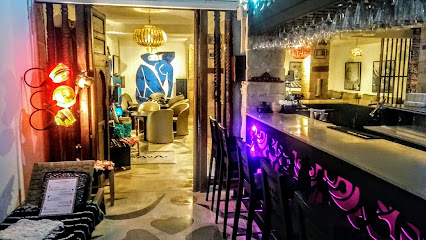
Markets, malls and hidden boutiques
Morocco Mall
Explore Morocco Mall in Casablanca for a unique shopping experience blending luxury, culture, and entertainment in one stunning location.
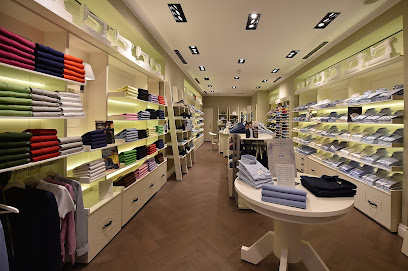
Medina Market
Discover the vibrant Medina Market in Casablanca, where culture, cuisine, and crafts come alive in a lively, authentic Moroccan experience.
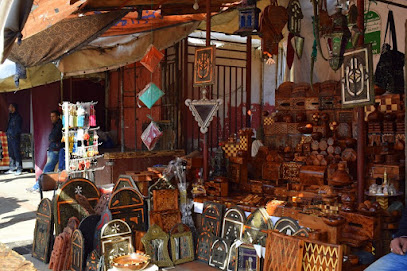
Marché du Sénégal
Explore the vibrant Marché du Sénégal, a cultural gem in Casablanca, offering handcrafted goods and delicious local cuisine in a lively market atmosphere.
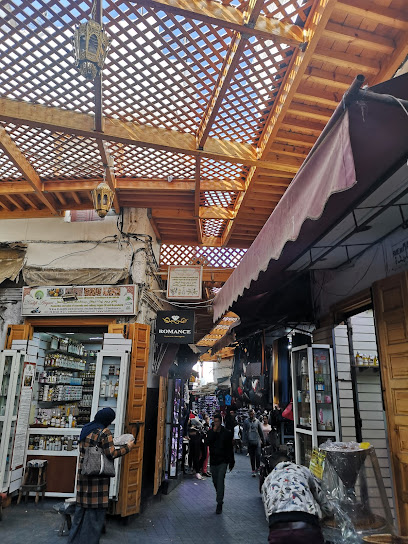
The Good Place Maroc
Explore The Good Place Maroc, a vibrant gift shop in Casablanca, offering unique souvenirs and tech accessories reflecting Moroccan culture.
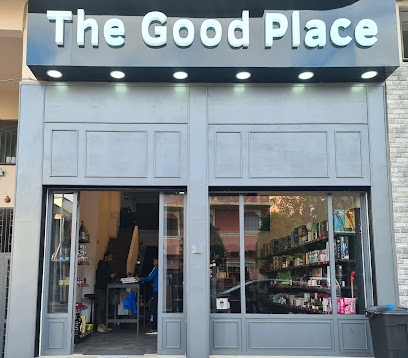
Souvenir du maroc
Explore the vibrant essence of Morocco at Souvenir du Maroc, where unique handicrafts and authentic souvenirs await every traveler.
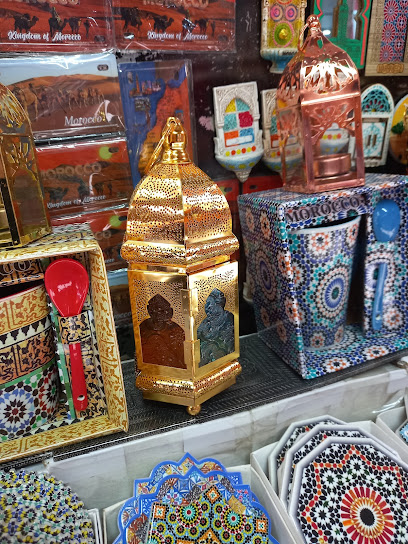
Souvenir du Maroc
Discover authentic Moroccan souvenirs at Souvenir du Maroc, where every item is a piece of the country's rich culture and artistry.
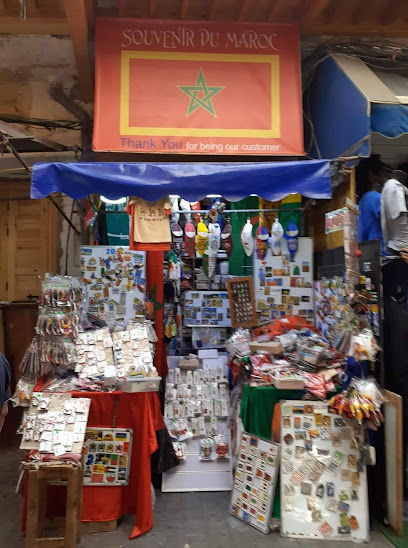
.
Discover unique Moroccan craftsmanship in Casablanca's home goods store, perfect for finding memorable souvenirs and decor.

Old Souq
Discover the Old Souq in Casablanca: A vibrant marketplace filled with local crafts, flavors, and the spirit of Moroccan culture.
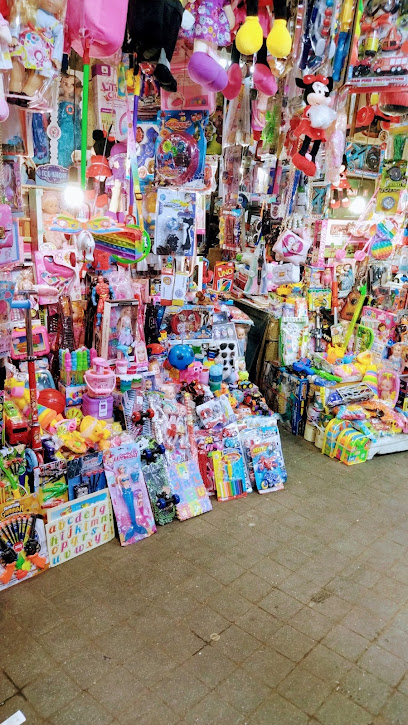
Silver market Casablanca Médina
Explore the Silver Market in Casablanca Médina: A vibrant shopping destination brimming with culture, craftsmanship, and local delicacies.
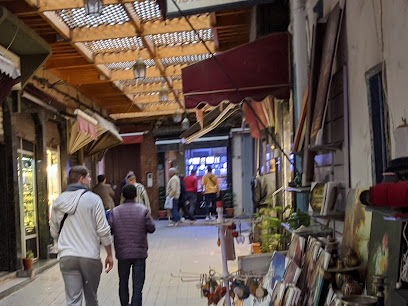
Médina shopping
Explore Médina Shopping in Casablanca for unique Moroccan gifts and crafts that capture the essence of the region's rich culture and artistry.
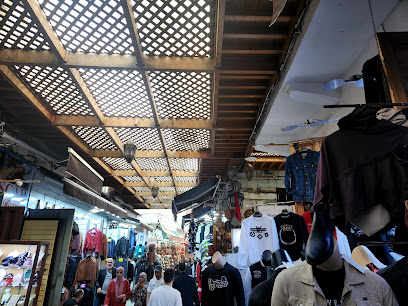
Essential bars & hidden hideouts
The Irish Pub Casablanca
Experience the vibrant blend of Irish culture and Moroccan hospitality at The Irish Pub Casablanca, your go-to destination for lively nights.
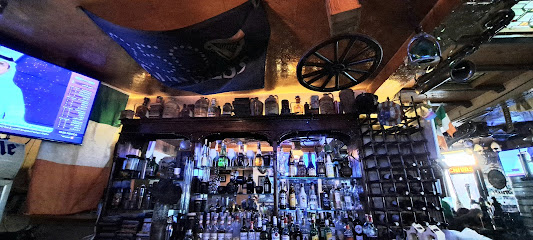
Le Jefferson
Experience the vibrant nightlife of Casablanca at Le Jefferson, a unique bar and lounge offering exquisite cocktails and delightful dining.
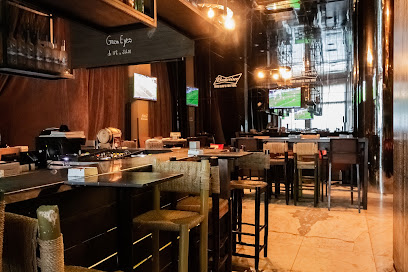
Amstrong Official
Discover the vibrant nightlife of Casablanca at Amstrong Official, where live music and a lively atmosphere create unforgettable experiences.
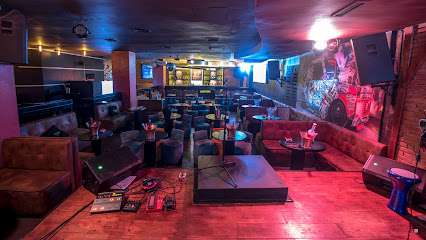
Bar Atomic
Discover the lively atmosphere and unique drinks at Bar Atomic, the must-visit bar in the heart of Casablanca for an unforgettable nightlife experience.
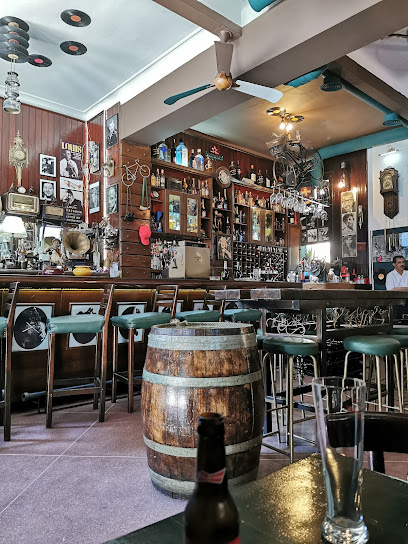
Wynn
Experience a delightful blend of fine wines and exquisite cuisine at Wynn, Casablanca's premier wine bar and brasserie.
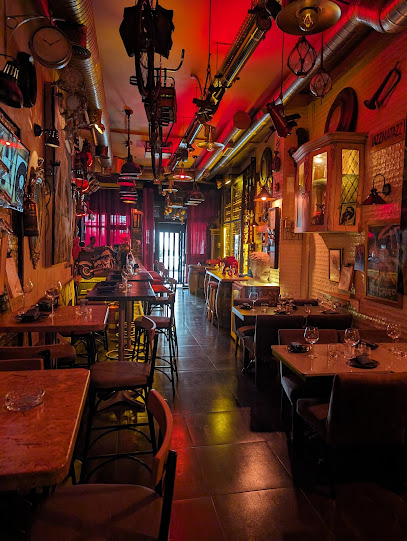
Bar CasArt
Experience the vibrant nightlife of Casablanca at Bar CasArt, where great drinks and a lively atmosphere await in the heart of the city.
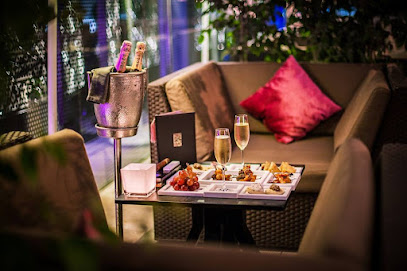
Petit Poucet
Discover Petit Poucet: Casablanca's charming cocktail bar with a nostalgic 60's vibe, perfect for a delightful night out.
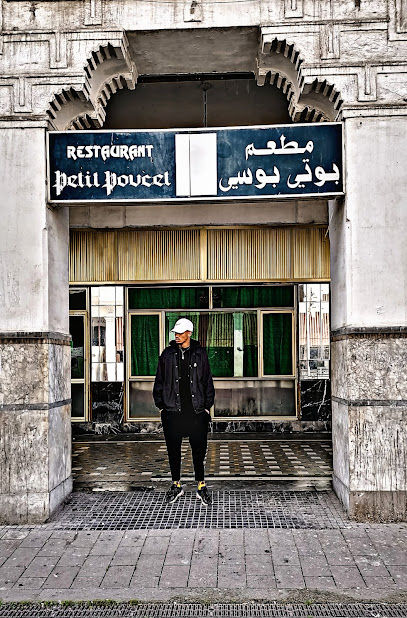
NIXX/XXIN
Enjoy a lively atmosphere and expertly crafted cocktails at NIXX/XXIN, Casablanca's premier cocktail bar, perfect for nightlife lovers.
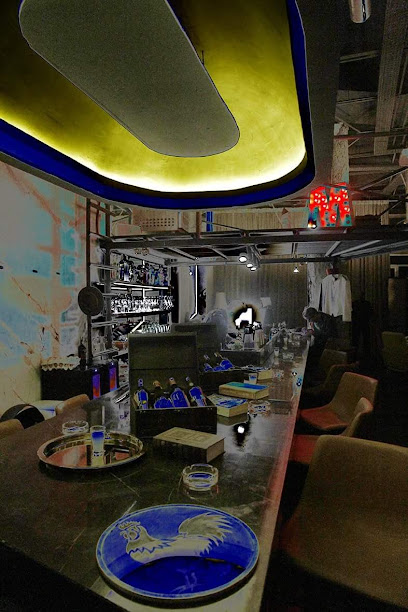
Café Bar Le Sans Pareil (ANOUAR Taher et Consorts )
Discover the vibrant atmosphere and eclectic drink selection at Café Bar Le Sans Pareil, the perfect spot for tourists in Casablanca.
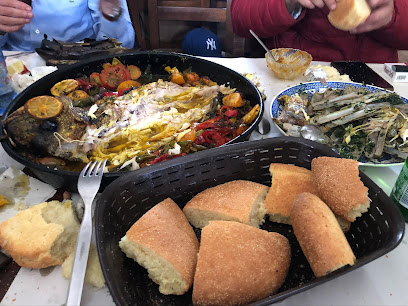
BAR MARSEILLE
Discover Bar Marseille in Casablanca, where creative cocktails and a lively atmosphere bring the city's nightlife to life.
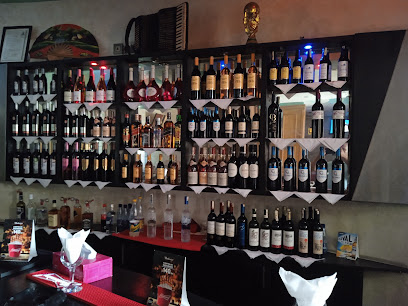
Local Phrases
-
- Helloسلام
[salaam] - Goodbyeوداعا
[wadaeaan] - Yesنعم
[naam] - Noلا
[laa] - Please/You're welcomeمن فضلك
[min fadlik] - Thank youشكرا
[shukran] - Excuse me/Sorryعذرا
[azraan] - How are you?كيف حالك؟
[kayfa halak?] - Fine. And you?بخير. وأنت؟
[bikhayr. wa anta?] - Do you speak English?هل تتحدث الإنجليزية؟
[hal tatahadath al'injlizia?] - I don't understandلا أفهم
[laa afham]
- Helloسلام
-
- I'd like to see the menu, pleaseأريد أن أرى القائمة، من فضلك
[uriidu an araa alqaimah, min fadlik] - I don't eat meatأنا لا أكل اللحوم
[ana la aakulu allahm] - Cheers!في صحتك!
[fi sahtik!] - I would like to pay, pleaseأود أن أدفع، من فضلك
[awadu an adfae, min fadlik]
- I'd like to see the menu, pleaseأريد أن أرى القائمة، من فضلك
-
- Help!مساعدة!
[musaeadah!] - Go away!ارحل!
[irhal!] - Call the Police!اتصل بالشرطة!
[iatisil bilshurtah!] - Call a doctor!اتصل بالطبيب!
[iatisil biltabib!] - I'm lostلقد ضللت
[liqad dalalt] - I'm illأنا مريض
[ana mareed]
- Help!مساعدة!
-
- I'd like to buy...أريد أن أشتري...
[uriidu an ashtari...] - I'm just lookingأنا فقط أتفرج
[ana faqat atfarij] - How much is it?كم يكلف؟
[kam yaklaf?] - That's too expensiveهذا غالي جدا
[hatha ghali jiddan] - Can you lower the price?هل يمكنك تخفيض السعر؟
[hal yumkinuka takhfeed alsu'ar?]
- I'd like to buy...أريد أن أشتري...
-
- What time is it?كم الساعة؟
[kam alsaa'ah?] - It's one o'clockالساعة الواحدة
[alsa'ah alwahidah] - Half past (10)النصف بعد (10)
[alnusf baed (10)] - Morningالصباح
[alsabah] - Afternoonبعد الظهر
[baed althuhr] - Eveningالمساء
[almasa'] - Yesterdayأمس
[ams] - Todayاليوم
[alyawm] - Tomorrowغدا
[ghadan] - 1واحد
[wahid] - 2اثنان
[ithnan] - 3ثلاثة
[thalathah] - 4أربعة
[arba'ah] - 5خمسة
[khamsah] - 6ستة
[sittah] - 7سبعة
[sab'ah] - 8ثمانية
[thamaniah] - 9تسعة
[tis'ah] - 10عشرة
[asharah]
- What time is it?كم الساعة؟
-
- Where's a/the...?أين ...؟
[ayn ...?] - What's the address?ما هو العنوان؟
[ma huwa al'anaan?] - Can you show me (on the map)?هل يمكنك أن تريني (على الخريطة)؟
[hal yumkinuka an tureeni (ala alkhariitah)?] - When's the next (bus)?متى القادمة (الحافلة)؟
[mata alqadimah (alhafilah)?] - A ticket (to ....)تذكرة (إلى ....)
[tazkirah (ila ....)]
- Where's a/the...?أين ...؟
History of Old Medina
-
The Old Medina of Casablanca dates back to the late 18th century, specifically established in 1770 by Sultan Sidi Mohammed ben Abdallah. It was designed as a fortified port and trading hub, reflecting the architectural and cultural influences of the time. The walls built around the Medina served both defensive and administrative purposes, marking the beginning of Casablanca's transformation into a significant urban center.
-
Throughout the 19th century, the Old Medina became a bustling marketplace, attracting traders from various regions, including Europe and sub-Saharan Africa. Goods such as textiles, spices, and crafts were exchanged, making the Medina a melting pot of cultures and contributing to the economic growth of Casablanca. This period laid the groundwork for Casablanca's future as a commercial powerhouse.
-
The arrival of the French protectorate in 1912 marked a pivotal change in the Old Medina's landscape. While the French aimed to modernize the city, they also preserved certain elements of the Medina's heritage. The contrast between the colonial architecture and the traditional structures within the Old Medina highlights the complex interplay between modernity and tradition during this period.
-
The Old Medina served as a center for resistance against colonial rule, particularly during the nationalist movements of the mid-20th century. It became a symbol of Moroccan identity, with local leaders and activists using its narrow streets to organize protests and rallies. This historical significance has solidified the Old Medina's role in the country's struggle for independence.
-
In recent decades, there has been a concerted effort to preserve and revitalize the Old Medina as a cultural heritage site. Restoration projects aim to maintain its historic architecture and promote local artisanship. The Medina now hosts cultural events and festivals that celebrate Moroccan traditions, drawing both locals and tourists to its vibrant atmosphere and rich history.
Old Medina Essentials
-
Old Medina is centrally located in Casablanca and can be easily accessed from other neighborhoods by various means of transport. From the Hassan II Mosque, you can walk to Old Medina in about 20 minutes. Alternatively, you can take tram line T1 towards the 'Casa Voyageurs' station and get off at the 'Place des Nations Unies' station, which is a short walk from the Medina. Taxis are also readily available and can be hailed from the street or booked via ride-sharing apps.
-
The best way to explore Old Medina is on foot due to its narrow and winding alleys. Public transport options like trams and buses are available to reach the outskirts, but within the Medina, walking is the most enjoyable and practical method. Bicycle rentals are also available, but maneuvering through the crowded streets can be challenging.
-
Old Medina is generally safe, but tourists should remain vigilant. Petty crimes like pickpocketing can occur, especially in crowded areas. It's advisable to avoid alleyways that are less frequented by tourists, particularly after dark. Always keep your belongings secure and be cautious when approached by overly friendly strangers.
-
In case of an emergency, dial 19 for police assistance or 15 for ambulance services. The nearest hospital is the Hôpital 20 Août, located a short distance from the Medina. It's advisable to have travel insurance that covers medical emergencies. For minor health issues, local pharmacies can provide over-the-counter medications.
-
Fashion: Do dress modestly, especially in religious sites. Avoid wearing revealing clothing. Religion: Do respect local customs and traditions; if entering a mosque, ensure to cover your head and shoulders. Public Transport: Do be courteous and offer your seat to the elderly. Don't eat or drink on public transport. Greetings: Do greet locals with a smile and a handshake; a light kiss on both cheeks is also common among acquaintances. Eating & Drinking: Do try local dishes, especially street food. Don't refuse food or drink offered to you, as it is considered impolite.
-
To experience Old Medina like a local, visit the souks early in the morning when they are less crowded. Engage with shopkeepers, who often welcome conversation and will share stories about their products. Be sure to try traditional Moroccan pastries at local bakeries and sip mint tea at cafes. Don't miss the chance to watch artisans at work, especially in areas known for leather goods and traditional crafts.
Nearby Cities to Old Medina
-
Things To Do in Meknes
-
Things To Do in Marrakech
-
Things To Do in Fes
-
Things To Do in Asilah
-
Things To Do in Chefchaouen
-
Things To Do in Tangier
-
Things To Do in Tetouan
-
Things To Do in Essaouira
-
Things To Do in Cádiz
-
Things To Do in Europa Point
-
Things To Do in Gorham's Cave Complex
-
Things To Do in St. Michael's Cave
-
Things To Do in Queensway Quay Marina
-
Things To Do in Alameda Botanic Gardens
-
Things To Do in Main Street








